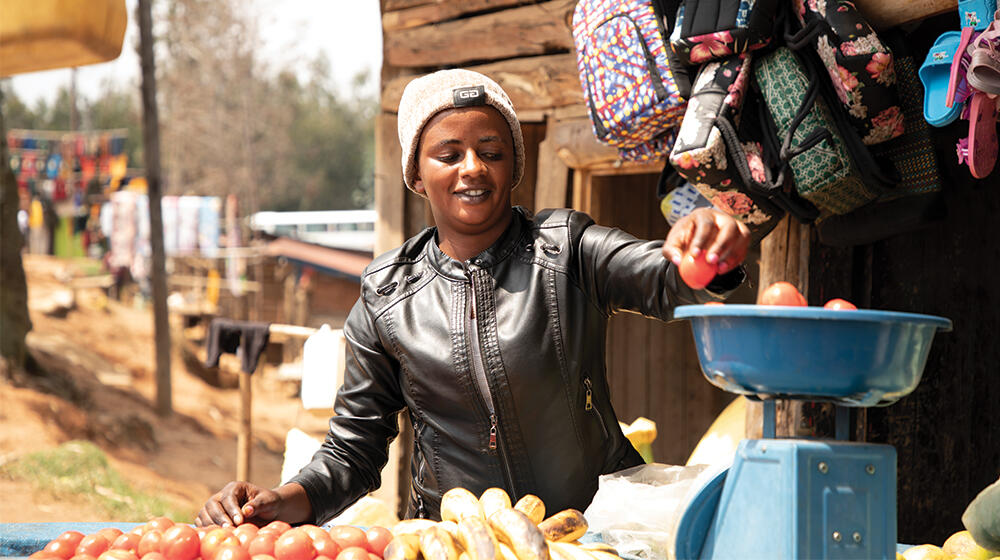Women’s contribution towards socio economic growth in Africa is widely documented and while gender equality is already enshrined into the African Continental Free Trade Area (AfCFTA) legal text, more needs to be done to ensure that women entrepreneurs and producers, their representative associations, and trade negotiators translate this general commitment into reality.
From 3 to 5 March 2022, Rwanda hosted the eighth session of the Africa Regional Forum on Sustainable Development (ARFSD 8) under the theme: “Building forward better: a green, inclusive and resilient Africa poised to achieve the 2030 Agenda and Agenda 2063”.
To stress on the significance of the AfCFTA in achieving gender equality towards achieving SDG 5 and Agenda 2063 in Africa, ECA, ITC and UNFPA, organized on 28th February a side event entitled; “AfCFTA as a vehicle for gender equality towards Agendas 2030 and 2063: A normative framework perspective" to discuss the ways and prospects to attain gender equality, notably through trade, in the drive to achieve the global and continental goals in question.
In an opening remarks for the event, the UNFPA Deputy Executive Director-P, Dr. Diene Keita emphasized the critical role of the AfCFTA in achieving the SDGs and the Africa Agenda 2063, including SDG 5 and aspiration 6 of Agenda 2063. She called for policy actions and legal reforms that ensure fair inclusion in trade; removal of trade barriers limiting participation, protection from violence and exploitation, access to credit and financial inclusion services
“Removal of barriers to trade is key in women’s involvement in trade under AfCFTA. Equally important is access to quality social services, including SRHR services and child care services to free women from the unequal burden of unpaid care work.” She stated.
Also in his opening remarks, Mr. Antonio Pedro, the Deputy Executive Secretary of UNECA, indicated his appreciation to see that the Side Event focus on gender equality and women empowerment and AfCFTA as an instrument to achieve these objectives. He shared that he believes the AfCFTA is a significant opportunity for Africa’s acceleration of efforts to achieve SDGs.
“It has been observed that women’s limited access to trade has caused a huge gap between men and women regarding women’s participation in the economy. The AfCFTA presents opportunities to solve these problems. It is these issues that this Side Event seeks to interrogate.” said Mr. Pedro.
Addressing the participants, the Minister of Gender and Family Promotion in Rwanda, Honorable Professor Bayisenge Jeanette confirmed that Gender equality and women empowerment are critical for the social, cultural and economic development processes.
“The implementation of the AfCFTA in a gender sensitive way will allow both women and men to benefit from this free trade area” She said.
A panel of discussion composed of speakers from different countries discussed the role of women’s political participation to support gender responsive legislations and policy making, Barriers to effectively develop and implement gender responsive legislation on the continent, Ways to harness the AfCFTA to fast-track women empowerment and be beneficial to women, Innovative approach on the continent to foster women’s economic empowerment, and the role of young people and youth innovators to African growth.
The deliberations provided a roadmap on women empowerment towards SDGs and aspirations of Agenda 2063 to feed into the broader discussions of this 8th Forum.


